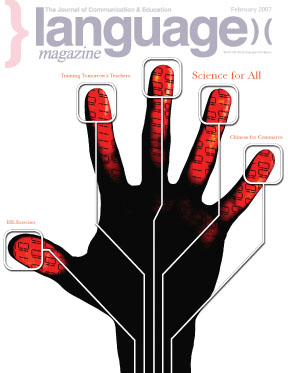Global Competitiveness or Bust

For the first time in years, the U.S. President has to work with a Congress in which his party does not hold a majority. Whatever your political affiliation, it is encouraging to see the different branches of government vie for power in the exercise of their democratic roles.
One point on which there seems to be almost universal agreement is that we must make changes to our educational system if we are to enjoy “global competitiveness” in the future. Indeed, global competitiveness has become a stock phrase for politicians at all levels of government from all sections of the political spectrum. Although there does seem to be some disagreement on how best to achieve it, funding our schools adequately appears to be a good start.
Even the President called for extra funding when he touched on education in his State of the Union address, “We must increase funds for students who struggle and make sure these children get the special help they need. And we can make sure our children are prepared for the jobs of the future, and our country is more competitive, by strengthening math and science skills.”
However, the President’s detractors remain unconvinced, as Jill S. Levy, president of the American Federation of School Administrators explained in response to the President’s address:
“While we continue to lose ground in what were once respected international relationships, we are losing the battle for supremacy in international trade. Without a highly educated multilingual citizenry capable of problem solving, higher order thinking and technological expertise, we cannot survive in this global universe. Without the knowledge of history, global politics, the arts, the great writers and philosophers, we cannot expect our children to become educated, productive adults.”
“The President’s education policy fails woefully in fulfilling the needs of our children and our country. While we applaud the intention of the No Child Left Behind (NCLB) legislation, its ‘one size fits all’ approach does little to meet the needs of individual students. Similarly, we believe that the law must permit sufficient flexibility to address the unique needs of urban, rural and suburban districts and schools. Closing the achievement gap, while meritorious, is simply not enough. NCLB needs to address the issue of what constitutes an appropriate education. Setting standards for school facilities; access to modern educational tools; appropriate school staffing for instruction, administration and supervision; and access to advanced professional development are required if we are to learn anything about our schools and ways to improve education.”
We are all realizing that we need to invest heavily in the education of all of our children who will need advanced skills, including a whole array of languages, far beyond our current expectations if they are to compete globally.
As far as I remember, it is the Congress that controls the government’s purse strings, so it is now up to the Democrats to stand by their convictions and make the investments needed in education at the federal level, and, hopefully, states will follow.
IN THIS ISSUE:
Science Education for All
Eugene E. García and Patricia Baquedano-López present an approach to equity and access in science education
Chinese 101
Jane C. M. Kuo, author, director of the Chinese language program at UCSD and Professor Emeritus at Thunderbird, gives us the low-down on learning Chinese
Beijing on Business
Hannah Zeiler suggests schools for the savvy business executive looking to capitalize on the opening up of the world’s largest market
Sowing the Seeds of School Success
Maria S. Quezada explains how the California Association for Bilingual Education is creating opportunities for teachers of the future
Roadrunner English
Steven Donahue continues his monthly series of literacy exercises designed as a supplement to existing programs to kick-start students’ progress
World Views
Domenico Maceri wants immigrant parents to be educated on the realities of bilingual education
Last Writes
Richard Lederer on a hearty selection of words


